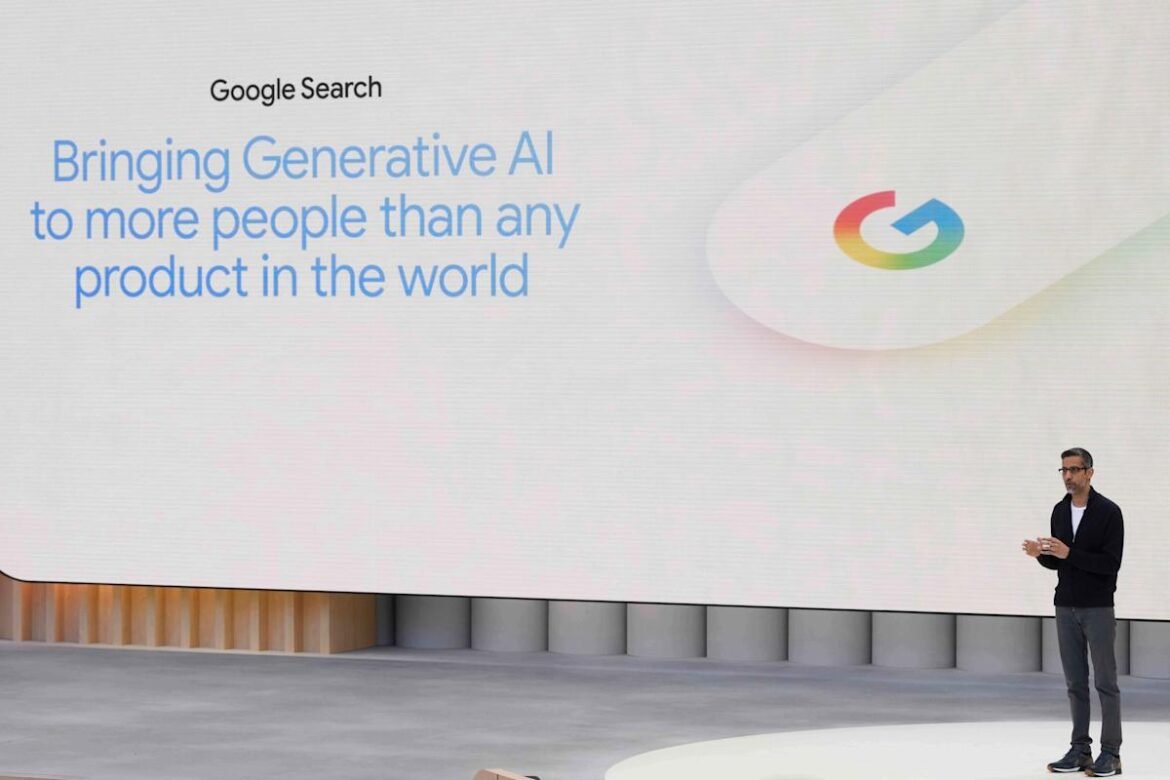This is The Takeaway from today’s Morning Brief, which you can sign up to receive in your inbox every morning, along with:
If Google has already moved past its most perilous legal challenge and wiggled out of the perception of playing catch-up to its rivals, the remaining question is one of search economics: How can Google make money from AI without dismantling the foundation of its search business?
In every quarter this year, and most resoundingly this week, Google’s answer to that existential question is that artificial intelligence will expand its users’ appetites for information. Google’s AI assistant, AI overviews, and AI Mode may eventually supplant the legacy search bar that has built the company. But the search giant’s first $100 billion quarter suggests cannibalization isn’t the right frame for Google’s AI transition. Augmentation is more like it.
The stock rose 5% following a triumphant report that exceeded expectations and thrust Google’s parent Alphabet back into the Big Tech spotlight. Where several of its peers flunked the initial rush after earnings as investors recoiled from ballooning AI spending, Google powered through it. The stock is neck and neck with Nvidia as the best-performing member of the “Magnificent Seven” so far this year, enjoying a gain of more than 50%.
“Alphabet’s execution on artificial intelligence, evidenced by strong traction for its Gemini app, which has more than 650 million monthly users, along with its ability to deliver solid advertising revenue, continues to drive results while refuting the AI-led disruption narrative,” Morningstar senior equity analyst Malik Ahmed Khan wrote in a note on Thursday.
Dan Ives, an analyst at Wedbush, was similarly bullish on Google’s search business. The record quarter was a show of strength and marks an inflection point of moving past legal troubles that had weighed on its valuation and escaping the laggard’s position in the AI race.
“Concerns around the impact of genAI on the business are fading, and following a favorable regulatory outcome for the Search business in the DOJ case last month, we are increasingly constructive on the longer-term durability of the segment,” Ives wrote in a note on Thursday.
Read more: Live coverage of corporate earnings
Investors’ reaction to Big Tech’s nonstop capex spree can seem fickle. But a reliable way to win approval is to present dazzling earnings, softening the blow of a bigger AI bill, or in Google’s case, showing that even gargantuan investments are already paying off. Alphabet increased its capital expenditures forecast for the year to a high point of $93 billion from its previous estimate of $85 billion. Alphabet CFO Anat Ashkenazi emphasized that customer demand for AI technology exceeds supply.



